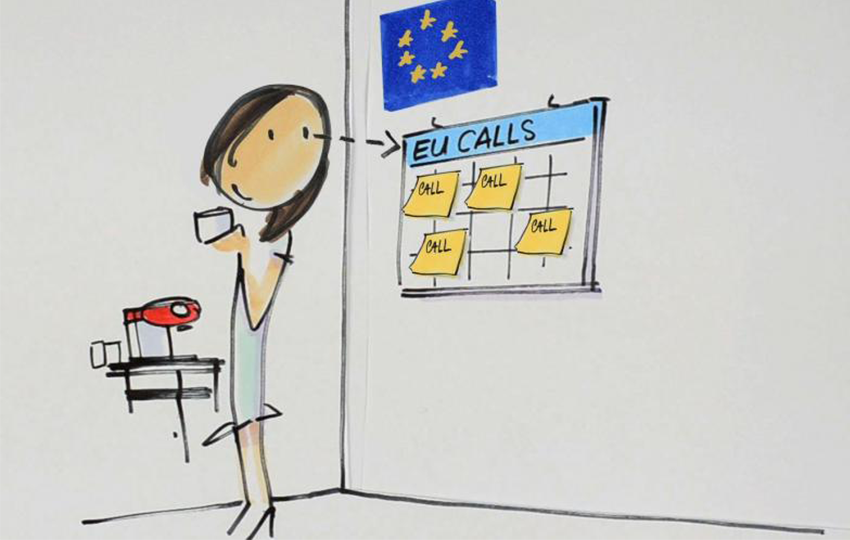Specific Challenge of the call:
A precondition for active demand is for consumers to be aware of their own potential to permanently or temporarily reduce energy consumption; and moreover, for them to know how to offer this potential to the market and what it would represent in terms of monetary value by bringing benefits to the energy system.
Different forms of collective action have the potential to assist consumers informing critical mass and to facilitate increased uptake of energy efficiency & active demand solutions and services. Although collective actions on energy efficiency have emerged in recent years, a lack of awareness on the potential benefits of such actions, together with regulatory barriers, continues to hamper their full development and uptake.
Finally, important challenges involve installed appliances (such as boilers for space and/or water heating) of which a big share is inefficient and fossil-fuel based, resulting in increased fuel consumption and fuel costs for households. Informing consumers of the potential energy savings and their monetization, as well as other benefits such as increased comfort and improved air quality, can result in increased motivation for replacing inefficient appliances, thereby permanently reducing consumption.
Scope:
2018:
The proposed action should develop activities informing and motivating consumers to change old and inefficient installed appliances with the highest energy saving potential (e.g. boilers, local space heaters, air heaters) to more efficient and clean energy heating and/or cooling solutions. While financial aspects (cost savings, payback period) would be the main motivating factor and therefore should be presented in a precise and credible manner, other aspects such as increased comfort and aesthetics, safety, improved air quality, or possible participation in demand-response should be the integral part of the actions in order to unlock the full potential of multiple benefits of energy efficiency improvements.
2019:
The proposed action should set up and/or support consumer cooperatives, consumer collective purchase groups, and/or other consumer-driven collective actions that form such energy communities to increase energy efficiency and/or optimise energy management within the community by for example combining collective solutions to distributed generation, distributed storage, and/or demand-response aggregation,
The proposed action should cover the following:
- Identify and address regulatory barriers and contractual conditions with utilities, suppliers, grid operators, technology providers etc. for cooperative actions, possibly linking activities with structural solutions involving public authorities;
- Demonstrate that collectively organised energy-related actions are financially viable and attractive to the consumer-members of the energy community.
In addition, the proposed action could cover the following, as relevant:
- Identify and implement solutions to address split incentives (e.g. allowing tenants to set up/join the consumer-driven collective action);
- Demonstrate collective actions of energy consumers based on the solutions and business approaches using digital tools and technologies (such as digital platforms or blockchain transactions). If the proposed action includes smart home/IoT solutions, it should link to the developments under the call DT-ICT-10-2018: Interoperable and smart homes and grids.
Relevant for both years:
The proposed actions should address the risk of “rebound effects” and propose measures to counteract them, where relevant. All relevant stakeholders necessary for the successful implementation of the action should be involved and relevant consumer organisations, in particular, should be either directly involved or their support demonstrated in the proposal. Proposed actions should also take issues of consumer data ownership and data privacy into account, where relevant. The proposed actions are invited to build on experiences and lessons learned in other relevant projects and programmes
The Commission considers that proposals requesting a contribution from the EU of between EUR 1 and 2 million would allow this specific challenge to be addressed appropriately. Nonetheless, this does not preclude submission and selection of proposals requesting other amounts.
Expected Impact:
Proposals are expected to demonstrate, depending on the scope addressed, the impacts listed below using quantified indicators and targets, wherever possible:
- Primary energy savings triggered by the project (in GWh/year);
- Investments in sustainable energy triggered by the project (in million Euro);
- Contribution to reducing regulatory barriers and improving contractual conditions;
- Increase domestic uptake of energy efficient products and services;
- Involvement of at least 5.000 consumers per million Euro of EU funding.
Additional positive effects can be quantified and reported when relevant and wherever possible:
- Reduction of greenhouse gases emissions (in tCO2-eq/year) and/or air pollutants (in kg/year) triggered by the project.
In the same framework, iED has already implemented several innovative projects which included innovative practices. If you are interested in applying for this call you could contact us and further discuss the available options.
Submission deadline:
- 04 September 2018 17:00 (Brussels time)
- 03 September 2019 17:00 (Brussels time)
Available Budget:
The Commission considers that proposals requesting a contribution from the EU of between EUR 1 and 2 million would allow this specific challenge to be addressed appropriately. Nonetheless, this does not preclude submission and selection of proposals requesting other amounts.
Eligibility of the applicants:
Legal entities established in the following countries and territories will be eligible to receive funding through Horizon 2020 grants:
- The Member States (MS) of the European Union (EU), including their outermost regions;
- The Overseas Countries and Territories (OCT) linked to the Member States
- The associated countries (AC)
Taking into account the nature of the activity and with the objective to maximize the European Added Value and European market uptake through transnational collaboration (Transition towards Secure, Clean and Efficient Energy and the Energy Union project are cross-national policy initiatives and priorities aiming at trans-national solutions.), the following additional eligibility criteria apply for Coordination and Support Actions (CSA):
- at least three legal entities shall participate in an action;
- each of the three legal entities shall be established in a different Member State or Associated Country

